5 Of Your Favorite Sites That Have Screwed-Up Dark Secrets

We've recently seen popular opinion on Facebook shift from "It helps us keep up with our aunts' cats" to "It's destroying our right to privacy and unraveling the very fabric of American democracy." But Facebook is far from the only popular online service with a dark side. For example ...
Tumblr Has A Community Dedicated To "Creepshots"
If you have no idea what a creepshot is, congratulations on, well, not being a creep. They're pictures and videos of women taken without their knowledge or consent, and they can be anything from a photo of their behind while they're walking, to videos taken with cameras hidden in clothing store changing rooms, to what would resemble a regular portrait if it wasn't for comments like "can't wait to jerk off to this lol." Did we mention that some of the unsuspecting targets are underage? Reddit used to have communities dedicated to creepshots before a crackdown killed them years ago.
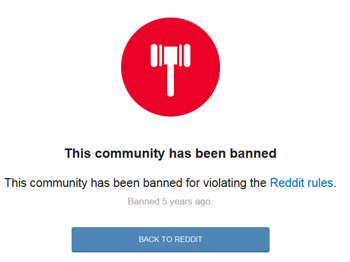
But all their enthusiasts simply migrated to Tumblr, where they've been happily violating the privacy of countless women for years.
One blog, for example, has pictures of a girl at an Apple store with charming hashtags like #hotteens and #creepindatass. Motherboard found nearly 70 Tumblr blogs focused on shit like that. One had 11,000 followers, another offered tips on how to effectively take photos without getting noticed, and a third was offering to sell 20 GB of collected videos for whatever donation the purchaser saw fit. Their "work" is done in schools, on the streets, in malls ... oh, and many take user submissions, so the sleaziest people you know have plenty of ways to express themselves.
All of this appears to be against both Tumblr's terms of service and common morality, but the site has shown no signs of moving to ban the blogs. Come on, Tumblr, get your shit together. You used to be famous for being full of creepy sex stuff that was consensual. What happened to you?
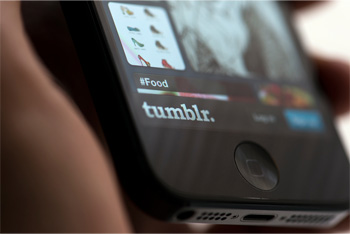
If you've ever played an MMORPG like World Of Warcraft, you know that half the fun comes from being part of the game's community. You can make friends, chat, have parties, or role-play to really get into your character. And yes, for some players, that role-playing occasionally includes cybersex, and that sex can even include creative use of the game's decidedly nonsexual animations. What happens between a consenting night elf and gnome is none of our business. But then there's the Goldshire Inn, aka the Rape Tavern.
If you step virtual foot in the inn, you'll find an aggressive community of people who shout, "Oh yeah, cum for all!" and send private messages like, "You horny? What's your number?" If they like the look of your character, they might tell you that they want to "fuck unconscious." That all sounds awful, but if you accidentally stumbled into the inn, you can just leave and get back to actually playing the damn game, right? Here's the problem: Part of the appeal for regulars of the, ugh, Rape Tavern is the rape. And while you can't rape someone over the internet (yet), you can harass people who are trying to flee you. One perpetrator described fleeing players as "really hot," because pursuing them makes it just like a real rape. It's unclear why anyone would admit that to a journalist, but here we are.
So imagine trying to play a game, only a bunch of people are following you around, bombarding you with questions like how old you are and whether you'd be willing to have sex for money, using racist and sexist language, and casting spells that emit white light so they can pretend that they're ejaculating. And if you complain, you're told that if you really don't like it, you can always log out, because otherwise anyone who tries to persist and play a game about killing monsters and collecting loot must secretly be really into pretending that giant pandas and trolls are jizzing on them. How nice that the virtual world also has a "Well she didn't fight back hard enough" excuse.
Oh, by the way, you only have to be 12 to play World Of Warcraft, and the Goldshire Inn is in one of the game's starting areas, meaning it could be among some baffled and horrified players' first experiences in the game. Players have spent years asking Blizzard to do something about the inn for both safety and their own sanity, to which the company has responded with, "Yeah, maybe we'll try something," and then not trying anything. At least WOW has faded in popularity, although that probably means we'll hear about a sex trafficking ring run through Fortnite any day now.
Bitcoin Is Wasting A Ridiculous Amount Of Energy
If you've been lucky enough to make it this far in life without learning how Bitcoin works, we're afraid we're going to have to ruin your streak. The short version, which we're sure that countless fascinating people will rush to correct, is that Bitcoins are "mined" by computers solving math problems. Mining requires serious processing power, because for both security and keeping the flow of new Bitcoins balanced, it is purposely resource-intensive. Just image that instead of the mint circulating hundred-dollar bills, a citizen who used the most electricity in a 20-minute interval was awarded one.
That was fine when Bitcoins were a niche interest for people who wanted to buy weed online, but now that it's replaced porn as the #1 topic for spam and pensions as the #1 retirement plan for Millennials, everyone is rushing to get in on the trend. As we write this, one Bitcoin is worth 7,600 U.S. dollars, and that's the only information some people needed to decide that they're Bitcoin mavens now. The price of GPUs has skyrocketed as miners try to get their hands on more processing power, and the energy used by all these miners has shot up accordingly. One Bitcoin transaction could power the average American house for a week.
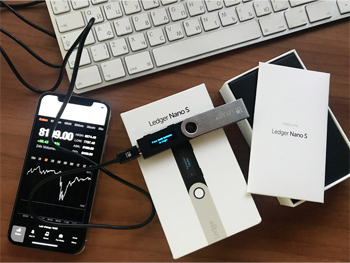
Scale that up, and at any given moment, Bitcoin miners are using enough energy to power 2.26 million American homes. And it's only going to keep increasing, because Bitcoins are booming and every transaction is designed to be a little bit harder than the last. One analyst estimates that, if prices remain steady, miners will use 24 terawatt-hours of electricity in a year. That's about what all 186 million people in Nigeria use annually, which will be a fun one for aid workers to explain.
That has consequences. On a personal level, Bitcoin miners, some of whom only have a vague idea of how Bitcoins worked, have seen their electric bills shoot up by $200. The small city of Plattsburgh, New York banned mining because their cheap electricity made it a hot spot ... right up until overage costs made electricity more expensive for everyone, regardless of whether they even knew what Bitcoins were. One mining operation was consuming 10 percent of the city's power. East Wenatchee, Washington also became a Bitcoin boom town, but unlicensed miners were melting insulation off wires and overwhelming transformer stations. One overheated transformer started a brush fire.
In addition to annoying locals, this is also terrible for the environment. One Mongolian coal-powered Bitcoin mine (a phrase no futurist could have ever predicted) puts out 24,000-40,000 kg of CO2 an hour. That's equivalent to 126,000 miles traveled by car. The price of a currency that's inefficient by design is the stupidest page in the future's textbooks on climate change.
Seamless Is A Condescending Protection Racket
Seamless is an online food ordering service, and while it's difficult for a company that can bring you shawarma at the touch of a button to be evil and stupid, they found a way. Take a look at some of their condescending ads.
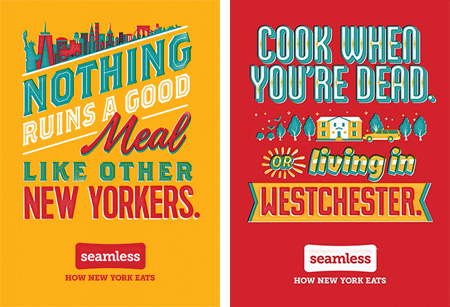
Other ads include "Avoid cooking like you avoid Times Square" and "Cooking is so Jersey." Their ads are all would-be memes about how social interaction and adulting are, like, suuuper hard, because they all appear to have been written by a middle-aged marketing committee that spent half an hour browsing Twitter. Are you antisocial and too lazy or stupid to cook? Then Seamless is the perfect service for you, you childish moron! They also advertise with a weird attitude toward gentrification.
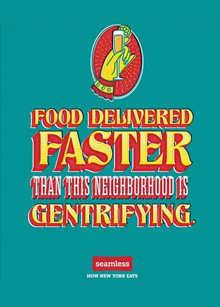
Gentrification is a complicated issue, but maybe it's not the greatest idea for a company to joke about neighborhoods getting rebuilt with expensive new homes if their target market is also made up of Millennials who can't afford those homes. Use Seamless, because cooking is for gross, un-hip poor people!
If that criticism is too abstract for you, Seamless also screws their delivery drivers by treating them like exploitable cogs with no rights, and they take a percentage from every order a restaurant gets through their site. There are four "commission levels," ranging from 12.5 percent to 20 percent, and the more a restaurant pays, the higher they'll appear in search results. Those commissions can add up to $110,000 a year for a typical restaurant, but the alternative is worse. In New York City, Seamless has such a monopoly that restaurant owners believe they'd be forced to close if they didn't have a presence on the site, making it a protection racket with whimsical hashtags. They don't dominate or annoy their other markets quite as much yet, but if you ever see a local ad about how you should order in because your mom is on her deathbed and is going to take the arcane art of spaghetti with her, you'll know that the cancer is spreading.
Wikipedia Has Its Own Version Of The NRA
One of Wikipedia's strengths is its reaction speed. If a man goes viral for getting kicked in the crotch by an angry goat, he'll soon have a detailed page covering his full biography for anyone who wants to learn about him. And because of Wikipedia's dedication to neutrality, there will be no judgment of the decisions that led him to this point in his life.
But Wikipedia's efforts to stay neutral aren't perfect, and one of its blind spots, as The Verge pointed out, appears to be guns. When editors tried to add information on mass shootings to the pages of guns commonly used in them, there was a swift backlash and nasty arguments. One user called it "the usual gun confiscator garbage." That's why the page for "AR-15 style rifle" mentions its role in mass shootings and the controversy over civilians being allowed to own them, but pages for specific common models, like the Colt AR-15 and the ArmaLite AR-15, are purely technical and devoid of all mention of their common use in mass shootings. From the thousands of words of description and borderline-pornographic attention to detail in dozens of photos illustrating subtle differences between model types, you'd think you were looking at the pages of exotic animals and not the center of one of the hottest of hot-button issues in modern America.

There are also huge arguments over nomenclature. Wikipedia's gun enthusiasts hate terms that they consider broad and meaningless (like the vague "assault weapon"), while their opponents argue that pro-gun users employ terms that are little more than PR-friendly marketing slogans (like "modern sporting rifle" as a euphemism for AR-15, because apparently modern sportsmen need to kill dozens of deer in minutes). That means pages and pages of bitter and esoteric arguments in lieu of doing anything productive, although that's admittedly not an online situation that's exclusive to Wikipedia.
It's not inherently problematic for Wikipedia to be full of interest groups. That's actually how the site functions -- you have to be invested in a subject to write thousands of words on it for free. And it's valid for the pages on various gun models to be focused on their technical aspects, because people look them up for that reason too. But that level of emotional investment can also skew your perspective, especially when it's a subject as heated as guns.
So the Firearms project has been accused of breaking Wikipedia's rules against canvassing for changes and using charged, debatable language, like the NRA's claim that they're America's "oldest continuously operating civil rights organization." Regardless of what you think of the NRA, there's a subtle but important difference between writing a Wikipedia page that uncritically declares their self-description to be true and writing a page that points out that this is how the NRA styles themselves, then presenting the cases for and against its veracity. But hey, Wikipedia articles are perpetually in flux thanks to behind-the-scenes debates, so we're sure that both sides will eventually be able to hash out a compromise any decade now.
Mark has a bookand ison Twitter,a website with no downsides whatsoever.
Support Cracked's journalism with a visit to our Contribution Page. Please and thank you.
For more, check out 5 Reasons We Need To Slow The Hell Down On Social Media and 6 Things Social Networking Sites Need To Stop Doing.
Follow us on ... uh ... Facebook.